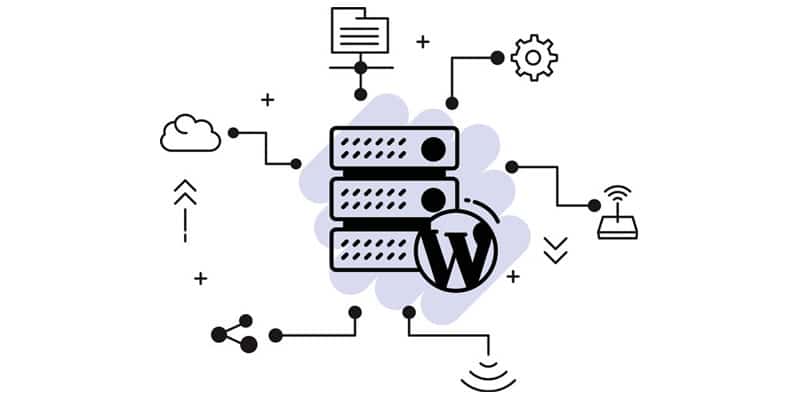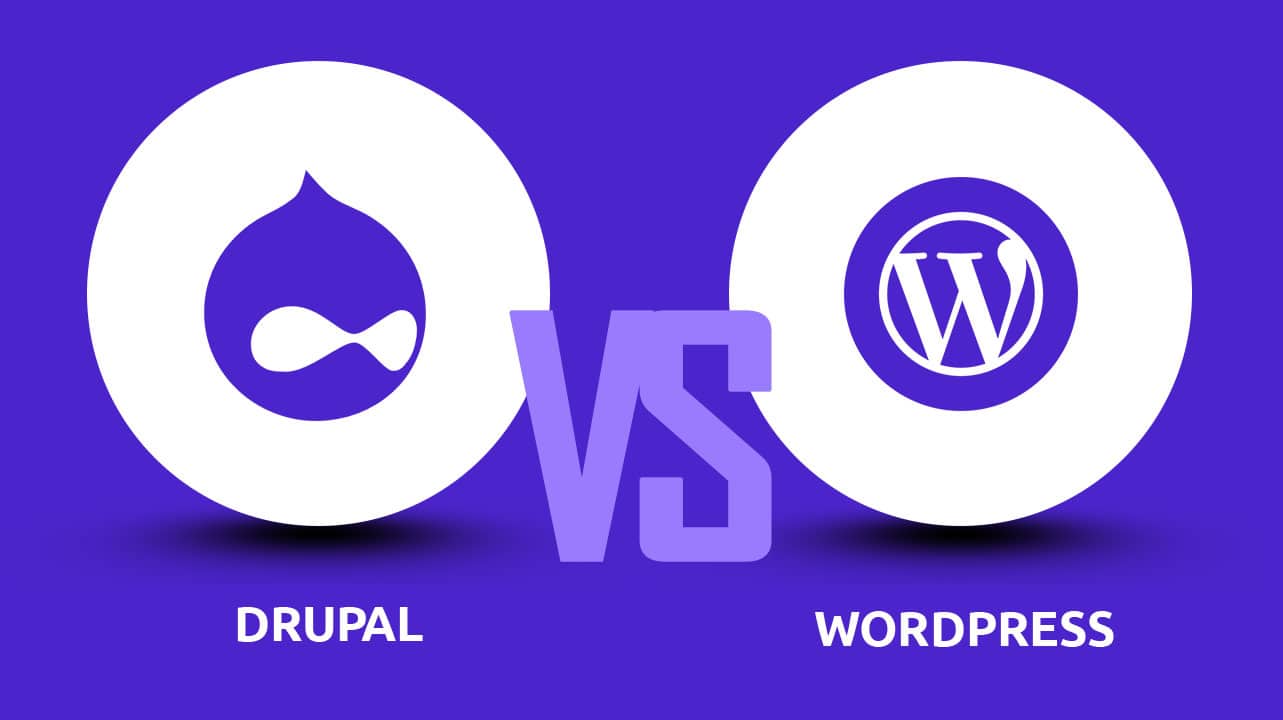What is WordPress hosting optimization?

WordPress hosting optimization optimizes a WordPress site for faster loading times, better scalability, and better performance. One of the most helpful things you can do to optimize a WordPress site is to ensure that all the files and resources are properly located and loaded by the WordPress server. Improperly configured files and folders can slow down the loading time of your site and can also lead to errors and instability.
Improve WordPress site speed and performance involves considering the impact of plugins and scripts on your site. Certain plugins and scripts can increase complexity and negatively affect performance. It’s crucial to evaluate the plugin and script requirements of any third-party tools you intend to use and determine if there are less resource-intensive alternatives available.
Additionally, monitoring the overall size and structure of your WordPress site is important. Having too many files and folders can also slow down your site’s performance.
How can you optimize WordPress hosting?

1. Choose the Right Hosting Provider – Choosing the right hosting provider is crucial to optimizing WordPress hosting. Look for providers that offer server-level caching, automatic daily backups, SSL certificates, and managed WordPress hosting.
2. Utilize Caching – Install a WordPress caching plugin such as W3 Total Cache or WP Rocket to quickly and easily optimize your WordPress site. Caching helps reduce page loading times by storing a static version of your pages that can be served quickly to visitors.
3. Optimize Your Images – Images are often the largest page assets and can greatly slow down page loading. Make sure to compress and resize all images on your site with a plugin, such as WP Smush, before uploading them.
4. Minify CSS and JavaScript Files – Minifying your CSS and JavaScript files can help reduce the number of requests made to the server and optimize page loading times. Use a plugin such as Autoptimize to quickly get the job done.
5. Enable GZIP Compression – GZIP compression helps reduce the size of the files sent from the server to the visitor’s browser. Use a plugin such as GZIP Ninja Speed Compression to enable GZIP compression on your WordPress site.
6. Enable Keep-Alive – Keep-Alive sends a single TCP connection from the visitor’s browser to the web server, allowing them to download multiple files without making multiple requests and optimizing their website loading times.
7. Use a CDN – A content delivery network (CDN) helps serve static files such as images and JavaScript files to visitors faster by hosting them on multiple servers around the world. Popular CDNs include CloudFlare, Amazon CloudFront, and Fastly.
To optimize your WordPress hosting, what benefits can you expect to receive?

There are several benefits to optimizing your WordPress hosting:
- Improved website performance – Optimizing your hosting can lead to faster loading times and a better overall user experience. This is especially pertinent if your website receives a lot of traffic, as a slow-loading website can drive visitors away.
- Enhanced security – A trusted hosting provider will have measures to protect your website from hacking and other security threats. This can give you peace of mind knowing that your website is secure.
- Better search engine rankings – Google considers website loading times when ranking websites in search results. If your website loads faster, it is more likely to rank higher in search results, which can lead to more organic traffic.
- Increased uptime – A reliable hosting provider will have high uptime, meaning that your website will be available to visitors more often. This is essential for a professional image and to ensure your visitors can easily access your website.
- Scalability – If your website grows and attracts more traffic, a reliable hosting provider will be able to accommodate the increased demand without your website crashing or becoming unavailable. It is especially crucial for e-commerce websites that depend on a constant traffic flow to maintain their business.
- Customer support – A quality web hosting provider will have a team of knowledgeable customer support staff available to help you with any issues with your website. This can be especially useful if you are not tech-savvy or if you encounter an unexpected problem with your website.
By optimizing your WordPress hosting, you can significantly improve WordPress site speed and performance, leading to better website performance, enhanced security, improved placement in search engines, increased uptime, scalability, and better access to customer service.
What are the risks of not optimizing WordPress hosting?

There are several risks associated with not optimizing a WordPress site that is hosted on a server:
- Slow load times – If a WordPress site is not optimized, it can take a long time to load, which can be frustrating for users and result in them leaving the site. Slow load times can also impact the search engine rankings of a site, as search engines favour sites that load quickly.
- Increased resource usage – If a WordPress site is not optimized, it can consume a large number of resources on the server, such as CPU and memory. This can result in the site becoming slower and more prone to errors and can also cause issues for other sites hosted on the same server.
- Security vulnerability – Unoptimized WordPress sites are more susceptible to vulnerabilities, as they may need to be kept up to date with the latest security patches and may run outdated versions of WordPress or plugins. This can make the site more vulnerable to attacks, such as malware and hacker attacks.
- Cost – An increase in hosting costs may result if the WordPress site needs to be optimized and consume a large number of resources. This is because the hosting provider may need to allocate more resources to the site. Alternatively, the site may need to be moved to a more expensive hosting plan to accommodate the increased resource usage.
By optimizing your WordPress site, you can enhance its speed, performance, and efficiency, thus improving its overall performance and mitigating the risks associated with slow-loading sites. This optimization can significantly enhance the user experience and boost search engine rankings, ultimately reducing hosting costs. Therefore, taking steps to improve WordPress site speed and performance can help you achieve a faster, more secure, and more efficient website.
How can you measure the optimization progress?

Measurement of optimization algorithms can be accomplished in a number of ways. Some common metrics include:
- Objective function value – The value of the objective function (also known as the cost function or loss function) at each iteration can be used to measure the progress of the optimization algorithm. A decrease in the objective function value indicates that the optimization algorithm is progressing.
- Convergence – Convergence refers to the idea that the optimization algorithm is approaching a minimum or maximum value. This can be measured by tracking the change in the objective function value over time. The small change indicates that the optimization algorithm is convergent.
- The number of iterations – The number of iterations required to reach convergence can be used as a measure of optimization progress. An optimization algorithm that requires fewer iterations to converge is typically considered more efficient.
- Time to convergence – The time it takes for the optimization algorithm to converge can also be used as a measure of optimization progress. A faster convergence time is typically preferred.
- Errors associated with training and validation – The training error and validation errors can be used to determine the progress of optimization in machine learning. The training error is the error in the training data, while the validation error is the error in a separate data set that was not used for training. A decrease in the training error and validation error indicates that the optimization algorithm is making progress.
- Overfitting and underfitting – Overfitting and underfitting can be used as indicators of optimization progress in machine learning. Overfitting occurs when the model is too complex and is not able to generalize well to new data, while underfitting occurs when the model is too simple and is not able to capture the complexity of the data. A model that is neither overfitting nor underfitting is considered well-optimized.
- Convergence plots – Convergence plots can be used to visualize optimization progress. These plots show the objective function value or another metric over the course of the optimization. A downward trend in the plot indicates that the optimization algorithm is making progress.
What are some common optimization errors to avoid?

A website’s performance can be adversely affected by a number of common WordPress hosting optimization errors. Among them are:
- Not using a caching plugin – By storing static versions of pages and posts in the cache, caching plugins can improve the loading speed of a website. Not using a caching plugin can result in slower loading times and lower search engine rankings.
- Not optimizing images – Large, unoptimized images can slow down the loading speed of a website. Prior to uploading your images to the website, it is important to optimize them to ensure they do not adversely affect the overall performance of your website.
- Not using a CDN – A CDN (Content Delivery Network) helps distribute content across multiple servers, which can improve loading speeds for users located far from the server. Not using a CDN can result in slower loading times for users in different regions.
- Not enabling GZIP compression – GZIP compression helps to reduce the size of files sent from the server to the user’s browser, resulting in faster loading times. Disabling GZIP compression can slow down a website’s loading speed.
- Not using a lightweight theme – Heavy, poorly coded themes can slow down a website’s loading speed. Using a lightweight, well-coded theme is important to ensure optimal performance.
- Not regularly cleaning up the database – A cluttered database can slow down a website’s loading speed. To ensure that your WordPress website performs at its best, you need to regularly clean up the database by deleting old drafts, trashed posts, and unused plugins.
- Not using a performance monitoring plugin – Performance monitoring plugins can help identify issues causing a website to slow down. Not using a performance monitoring plugin can make it difficult to identify and fix issues impacting performance.
To enhance the speed and performance of a WordPress website, website owners should avoid these common hosting optimization errors. This will help ensure that the website operates at its maximum potential, providing users with a smooth browsing experience.
Final Thoughts

Improve WordPress site speed and performance of your site is paramount for its success, and optimizing your WordPress hosting plays a crucial role in achieving this goal. To improve WordPress site speed and performance, it is essential to follow best practices, including choosing a dependable hosting provider and incorporating caching and optimization plugins. By implementing these measures, you can significantly boost the speed and efficiency of your website.
To improve WordPress site speed and performance, it’s crucial to regularly update your website with the latest versions of WordPress, plugins, and themes. This not only enhances performance but also guarantees website security, protecting against potential vulnerabilities.
To enhance the speed and overall performance of your WordPress site, implementing a Content Delivery Network (CDN) can be crucial. By utilizing a CDN, you can significantly improve the loading speed of your site for users worldwide, making it particularly beneficial for websites with a global audience.
Regularly monitoring and analyzing your website’s performance using tools like Google Analytics can also help identify and address any issues that may be impacting your website’s performance.
By consistently taking measures to optimize your WordPress hosting, you can significantly enhance your website’s speed and performance. By doing so, you can provide a better user experience for your visitors, boost traffic, engagement, and ultimately increase conversion rates for your business. To improve your WordPress site speed and performance, it’s important to remain vigilant and implement ongoing optimization strategies.











